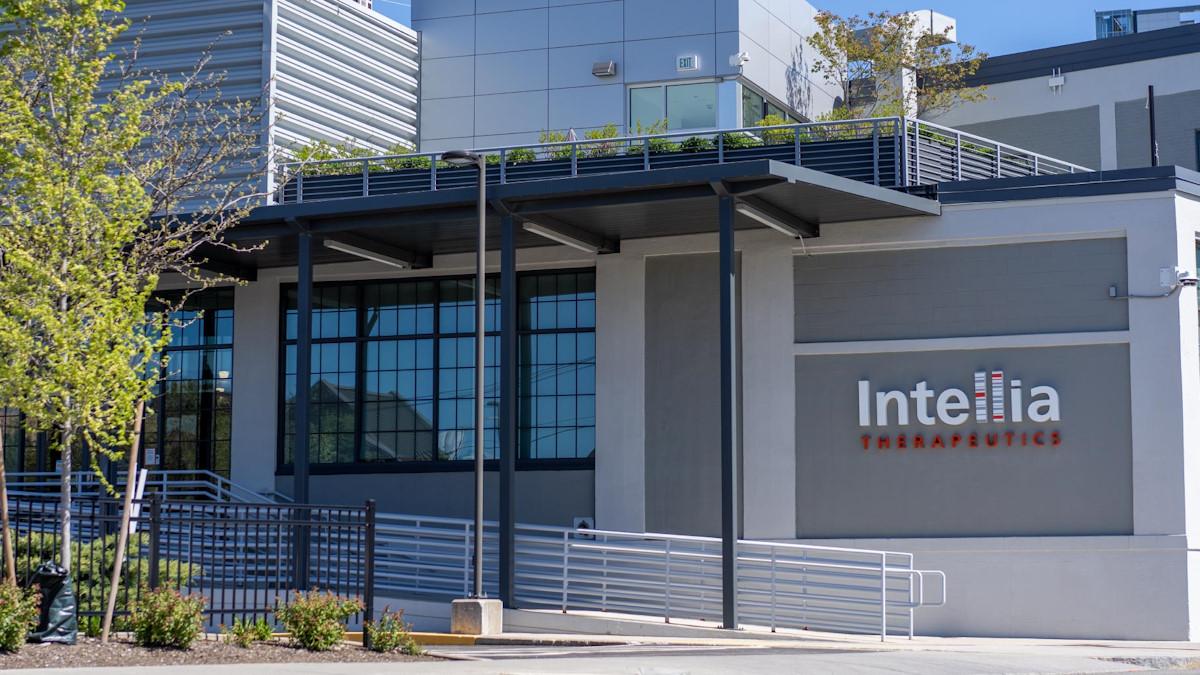Intellia trumpets CRISPR drug data, but shares fall

Intellia has reported results from a phase 2 trial of its gene-editing drug for hereditary angioedema (HAE) that it says build the case for the drug as a phase 3 trial gets underway – but its shares fell sharply as investors reacted to the news.
The CRISPR specialist said that a single 50mg infusion of NTLA-2002 – which switches off a gene involved in the potentially life-threatening inflammatory attacks that characterise HAE – resulted in an average monthly attack rate reduction of 77% over 16 weeks of follow-up in the 27-subject trial.
There was an 81% reduction compared to placebo during weeks five to 16, it added, and eight of the 11 patients in the 50mg arm were completely attack-free at the end of that period, suggesting NTLA-2002 – pitching to become the first in vivo CRISPR therapy – could be a "functional cure" for HAE.
Despite that positive assessment of the data, which was presented at the American College of Allergy, Asthma & Immunology (ACAAI) conference and simultaneously published in the New England Journal of Medicine, shares in Intellia fell more than 20% to $15.85, a 52-week low.
The weakness came after analysts at Baird expressed the view that the results were not compelling enough to offset the perceived risks associated with in vivo gene editing, and reduced the price target for Intellia's stock from $24 to $18.
They also pointed out that NTLA-2002 will enter a competitive market if approved. A series of injectable and oral treatments that require chronic dosing are already available, while others are nearing the market, including KalVista Pharma's recently filed oral plasma kallikrein inhibitor sebetralstat.
The lead investigator in the phase 2 trial, Danny Cohn of Amsterdam University Medical Center in the Netherlands, said that approved HAE therapies can reduce, but frequently do not eliminate all, angioedema attacks and require lifelong administration.
He said the new data is remarkable and suggests Intellia's therapy could permanently stop swelling attacks with a single infusion, a property that was highlighted by Stifel analysts who said that focusing on the attack rate data "misses the bigger picture."
That view was echoed by Intellia's chief executive, John Leonard, who said the data "underscore[s] the tremendous potential of [the] in vivo CRISPR gene editing therapy" and "sets NTLA-2002 apart from other prophylaxis treatments."
The company recently announced the start of patient screening for a phase 3 trial, called HAELO, which will test a one-off 50mg dose of NTLA-2002 in around 60 HAE patients and is due to readout from 2026 onwards.
Earlier this year, Vertex Pharma and CRISPR Therapeutics' Casgevy (exagamglogene autotemcel) for sickle cell disease and beta thalassaemia became the first-ever CRISPR-based therapy to be approved for marketing, but that is an ex vivo treatment that involves editing of bone marrow cells outside the body, rather than systemic dosing of the CRISPR agent.












